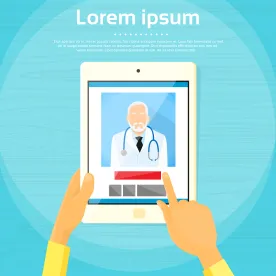On May 11, 2017, the European Cloud in Health Advisory Council (ECHAC) – a group of healthcare organizations, technology companies and patient representatives – launched its second whitepaper focused on use of data to improve health outcomes and delivery of care.
ECHAC launched the whitepaper at an eHealth Week 2017 session attended by ECHAC participants and members of the European Parliament, European Commission and several national health ministries.
The whitepaper identifies the advances that technologies like cloud computing and artificial intelligence are driving in areas such as telemedicine, clinical decision support software, carer productivity, health service optimization and research. The paper also highlights regulatory and policy “blockers” to the roll out of technology in the healthcare sector — including national rules that unduly restrict (or are perceived to restrict) processing or storage of patient data in the cloud.
The paper recommends that as EU Member States take measures to implement the new EU General Data Protection Regulation (“GDPR”), they consider whether there is an opportunity to update national laws that unnecessarily restrict cloud usage in the health sector, such as localization requirements for patient data and burdensome national certification regimes that do not map to international standards. The paper also points, as a best practice, to those national health services that are pioneering a “cloud first” IT strategy (Ireland being a leading example).
The whitepaper also considers appropriate regulatory frameworks for “secondary” re-use of patient data (i.e. use of data to improve health, care and services through research and planning). The whitepaper concludes that unlike use of data for primary purposes, where there is a broad consensus on the need for expanded data use, more dialogue is needed on the appropriate parameters for secondary uses.
Acknowledging the tremendous opportunities of health data re-use, but also the sensitivities, the whitepaper set out a “maturity model” that it proposes be used to begin a dialogue around the controls that should be in place for secondary re-use of patient data – for instance different opt-in/opt-out models. The whitepaper also backed calls for research into schemes that could encourage consensual, altruistic “data donation.”



 />i
/>i
